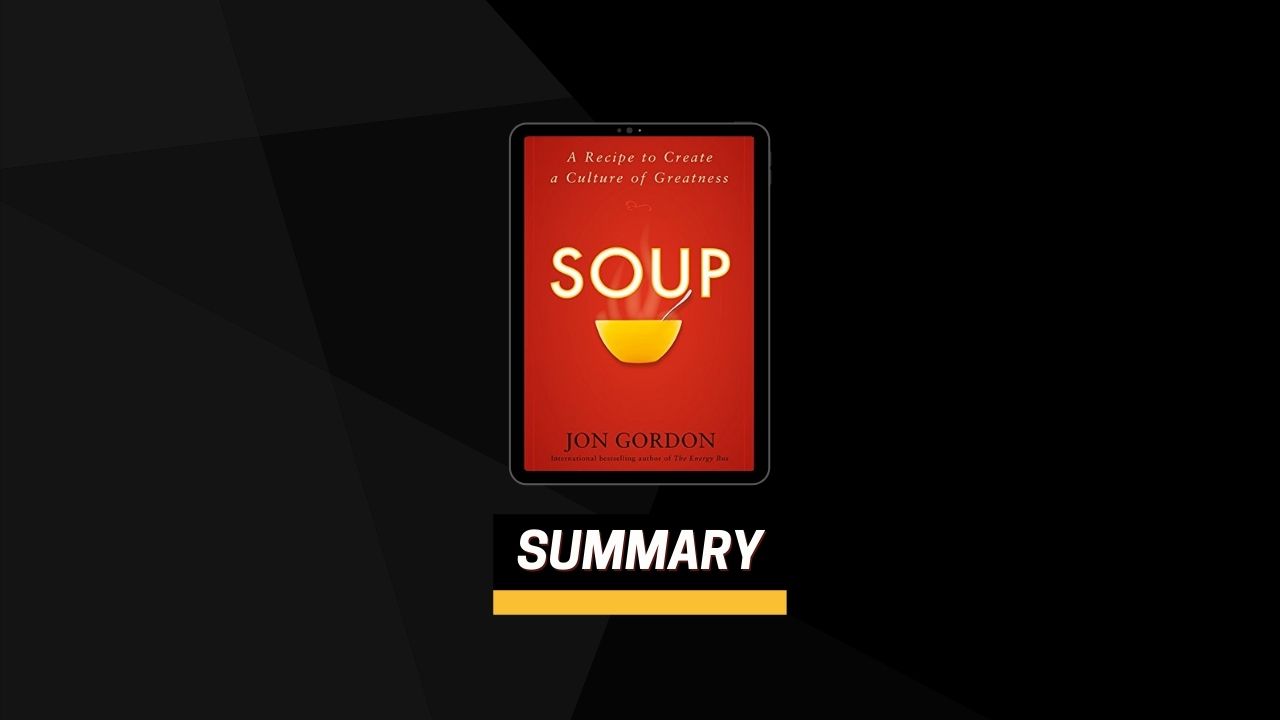Soup Is Soft, Soft Is Powerful
Many leaders think of culture creation as a warm-and-fuzzy, feel-good, soft project that isn’t urgent because you can’t quantify it with hard numbers. However, the most successful organizations know that although culture seems soft, it is really powerful and essential. Soup = Culture
Get The Base Right
We need to get back to basics and remember that it is the relationship that is the ingredient and foundation for great families, great teams, and great organizations. Humans were made for relationships, and soup is meant to be enjoyed together. We must invest in each other and in building relationships.
Success is simple, and so is creating a culture of greatness. You just have to do it, and it requires only three principles:
- You create a culture of greatness by expecting great things to happen–even during challenging times.
- You create a culture of greatness by expecting your people to be their best. You don’t settle for anything less than excellence.
- You create a culture of greatness by coaching, training, and developing your team to be their best.
Setting & Sharing Vision Isn’t Enough
Leaders may set and share the vision, but it is the positive energy of your people that will make this vision a reality. So you need to make developing a team of pot stirrers your priority. And once you have your team all making great soup, then you have to make sure you keep communicating with them, keep encouraging, keep inspiring, and keep developing their talent. It’s not just enough to ask them how you can help them realize their vision. You also must make sure you actually help them.
Get People to Stir Together
Just as soup is a direct reflection of the soup maker, so is the business culture a direct reflection of the leader.
You must nurture your culture. Too many organizations aren’t willing to invest the time and energy needed to create the culture they desire. They talk about culture, but they don’t invest in it. Too many organizations focus on the fruit of the tree, such as stock price, costs, sales numbers, and revenue targets, yet ignore the root of the tree–their culture-and wonder why the fruit dries up. For great fruit, you must nurture the root. You must focus on creating a culture that will deliver the outcomes and fruit you want. Sure, you have to measure sales, costs, and outcomes, but these are merely a byproduct of your culture, teamwork, productivity, and performance.
Relationships take time. They take effort and commitment. Ultimately, the quality of your business and life is determined by the quality of your relationships.
Who Stirs The Pot Matters
Who stirs the pot matters, and you, my dear, matter a lot. We’re so busy with work, career, to-do lists, technology, multitasking, and projects that we are forgetting the importance of relationships. We spend more time talking online to people we don’t know than to our own neighbors. We live in our homes as strangers, not taking the time to develop a relationship with our kids. And our kids are too busy online and on their phones to talk to their parents. They are living distracted lives, staring at their text messages rather than looking at the people in front of us.
Pour Love & Energy
The love and energy we invest into our life and work determines the quality of it.
The love we share in raising our children or developing employees or helping a customer impacts the final product. The love, or lack of love, we give ourselves and share with others will determine whether life is sweet or sour. It determines the fabric and texture of our relationships and how others perceive and receive us. When we love our kids, they feel it. When we stir the pot at work with love, our customers and colleagues notice. Just as soup is a reflection of the soup maker, our lives, careers, and businesses are the reflection of the love and energy that we put forth.
It takes more investment up front but it pays dividends.
Don’t Delegate Soup Making
Culture is something that can’t be delegated to human resources or to a member of the leadership team. It has to be driven by a team leader who is committed to and engaged in the process. It requires a lot of work up front, but not as much work as dealing with the crises, problems, and challenges associated with negative, dysfunctional, and subpar cultures.
While most organizations waste a lot of time putting out fires, you can spend your time building a great organization that rises above the competition.
If you want people to be their best, you must give them your best. Also when you invest in them, train them, and give them your best, this lets them know you care about them. Empower them and develop them and you will engage them. Help them be their best, and they will give you their best.
The Essential Ingredients
But what ingredients do I need to put into the soup to make it successful? Here are ten essential ingredients of soup:
- Hire Possibility Thinkers
- A Unifying Vision
- Spread the Vision
- Build Trust
- Enhance Communication
- Add a Big Dose of Transparency and Authenticity
- Treat Them Like Family
- Soup Is Meant to Be Enjoyed Together
- Fill Up with Appreciation
- Leading by Example
As you go through the ingredients, pay attention to not throw everything at once. By trying to accomplish too many things at once, you might wind up accomplishing nothing.
Great soup makers know the best way to make great soup is to add each ingredient one step at a time. Try to do too much at once, and you might as well pour the soup down the drain.


